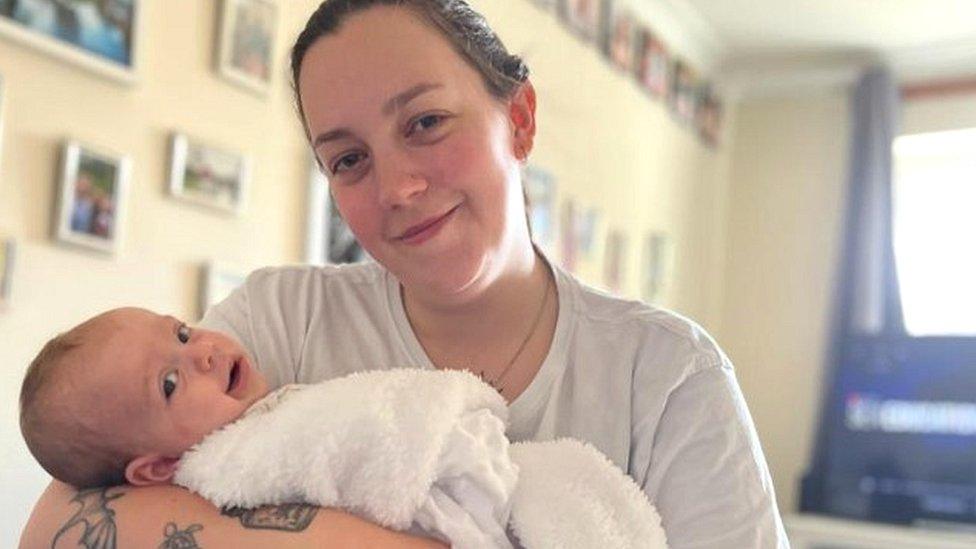Home births being cut back due to midwife shortage
- Published
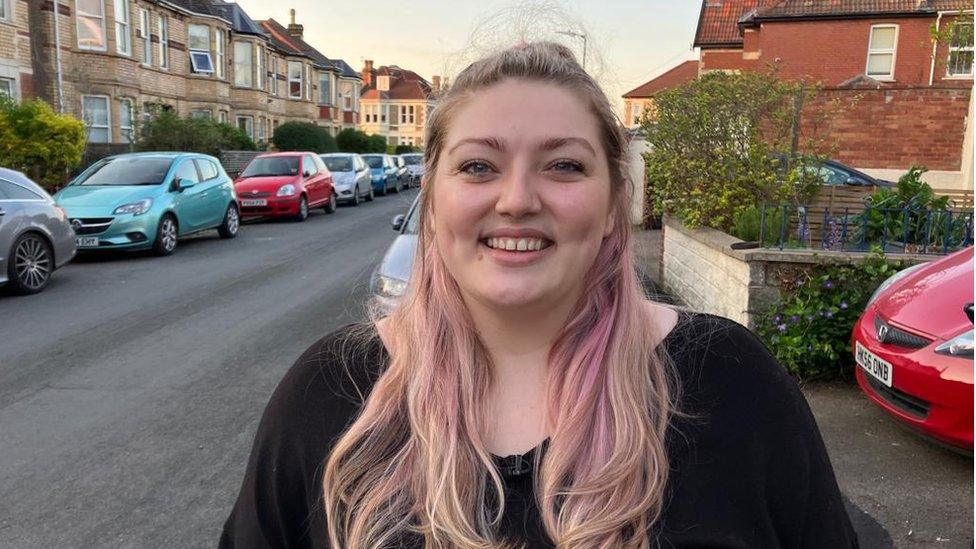
Midwife Sophie Inman says the current issues are the result of years of staff shortages
A midwife has said a "devastating" crisis in the sector is preventing women from having the labour they want.
Sophie Inman, from Bristol, said the current staffing problems began before the pandemic.
The Royal United Hospitals in Bath has announced the extension of a temporary closure of community birthing centres and home birthing services.
Staff absences because of Covid-19 are partly to blame, the RUH NHS foundation trust said in a statement.
Agy Pasek, 37, from Bath, was hoping to give birth to her first child at home in June.
But she has been warned she may now have to go into hospital because of a shortage of midwives.
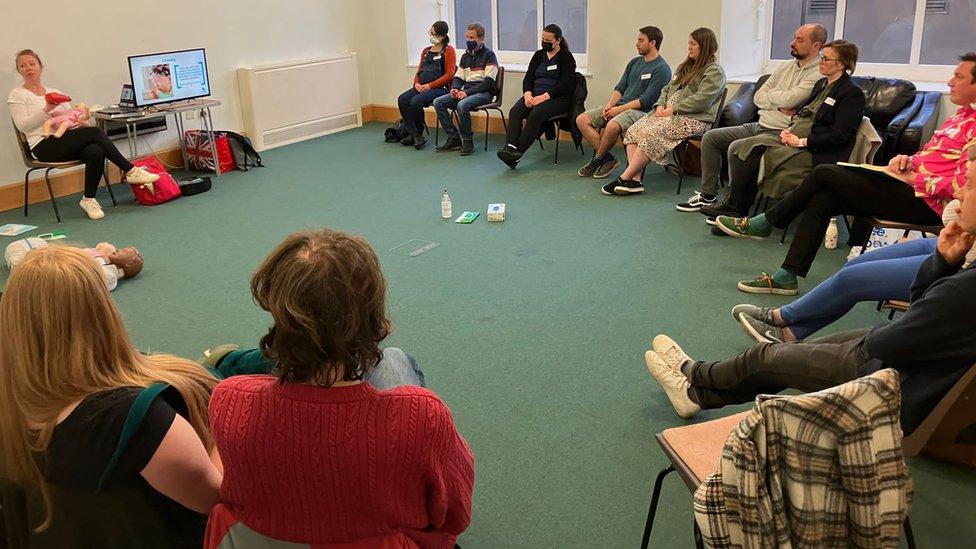
These parents are learning how to look after a baby at classes in Bristol
"Ideally I wanted to have the baby at home as it is a more relaxed environment," she said.
"I'm disappointed obviously... but I fully understand they have a duty as midwives to provide safe care.
"I think it must be really difficult for them... knowing that they want to give people these experiences and they can't."
The RUH in Bath said midwifery numbers are "critically short" due to Covid-19 sickness, which had led to the "difficult decision" to further suspend those services until 4 May.
The crisis was also flagged up during vigils held across the country last November, including in Bristol, where more than 200 people gathered.
Ms Inman said: "Ultimately this problem has been manifesting for many many years before the pandemic.
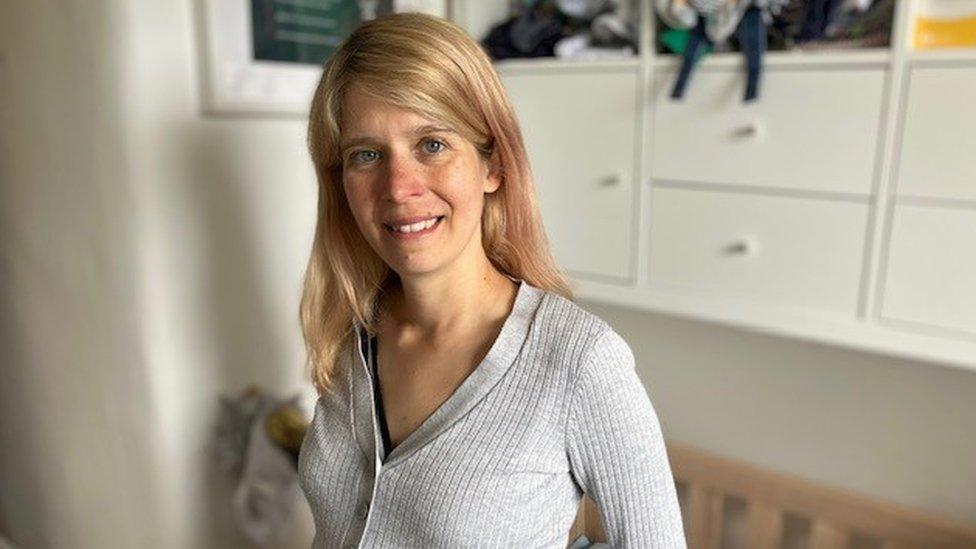
Agy Pasek has been told she may not be able to have a home birth
"If you haven't got enough staff to do the work that needs doing, people are stretched more and more.
"They become stressed at work, they take time off because they are so stressed and they become sick."
She added that stress leads to some leaving the profession altogether.
Ms Inman said that while the midwifery profession is trying to support women with their birth plans and preferences the best they can, for every 30 midwifes in training, 29 leave the profession.
This was "devastating" for both those staying in the profession and for the women they want to support, she added.
There is also a shortage of midwives in Gloucestershire, meaning all births will happen in the Gloucestershire Royal, with the Stroud and Cheltenham midwife-led units temporarily closed for labour, although some home births will still be supported where possible.
Gloucestershire Hospitals Medical Director Mark Pietroni said: "We appreciate that this uncertainty is very difficult for all the women, birthing people and families that we care for.
"However, it must be our priority to ensure a safe birthing experience for all service users and to do this we need to redeploy our midwives to alternative locations to ensure we can continue to provide safe, one-to-one care.
"We apologise to anyone whose birth choices are affected by these short-term changes."

Follow BBC West on Facebook, external, Twitter, external and Instagram, external. Send your story ideas to: bristol@bbc.co.uk , external
- Published21 April 2022
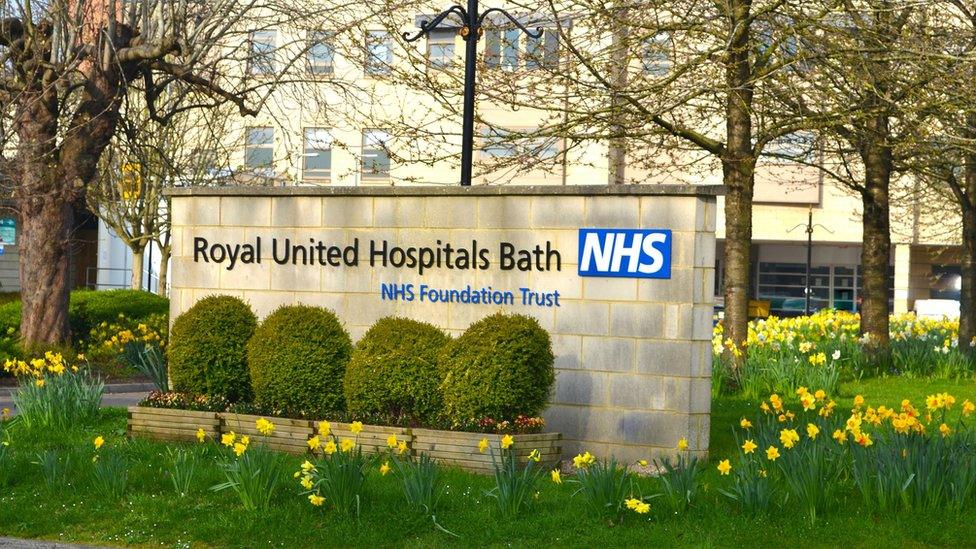
- Published21 November 2021
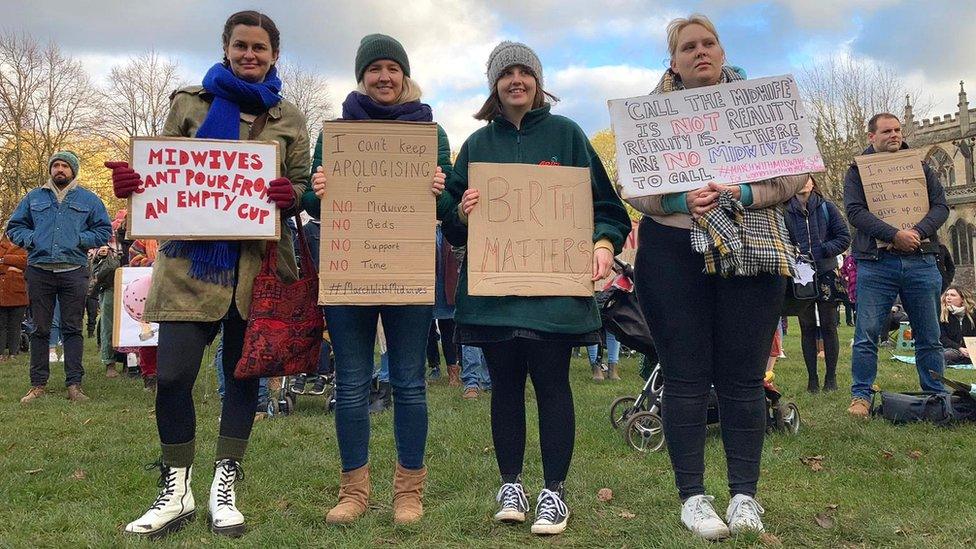
- Published21 November 2021
